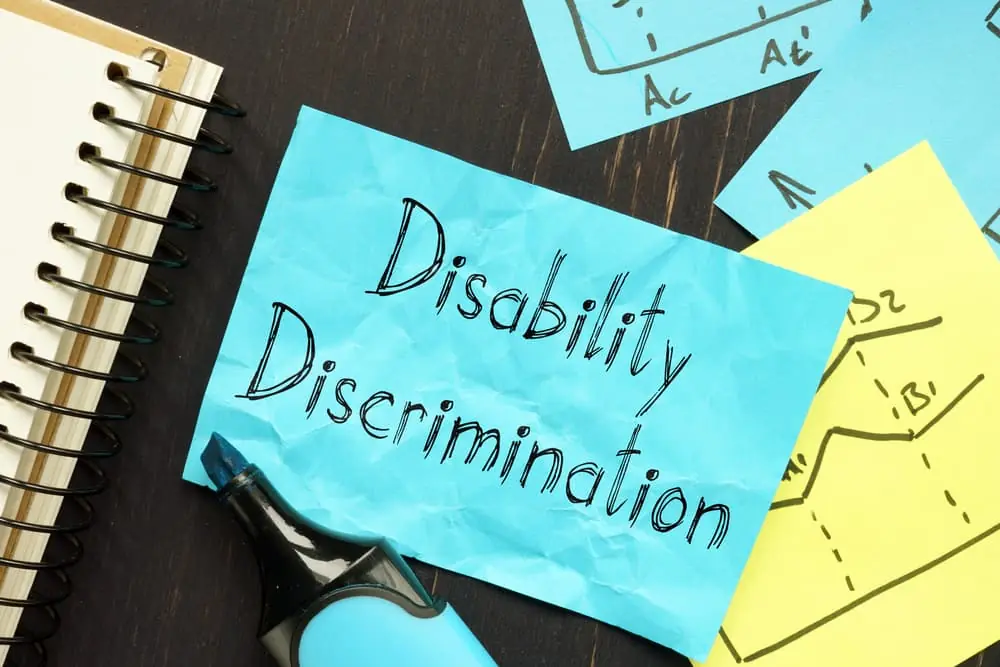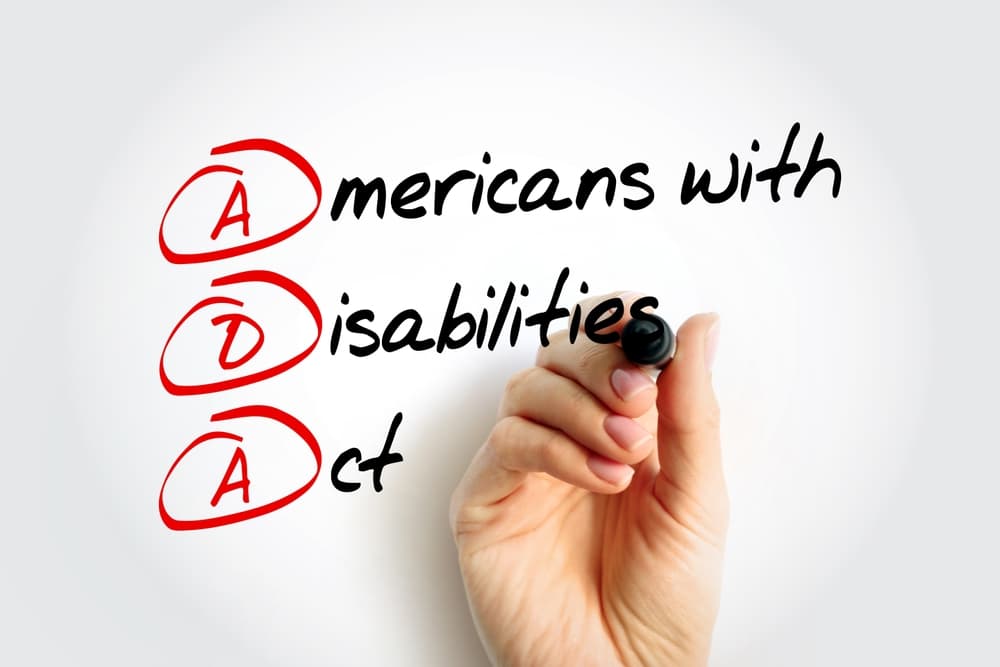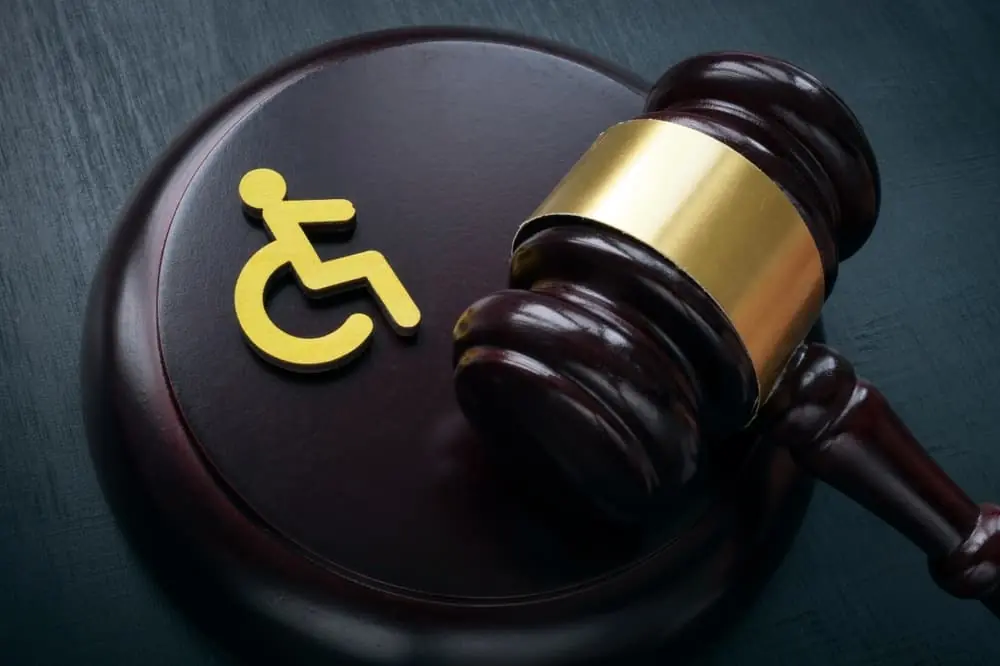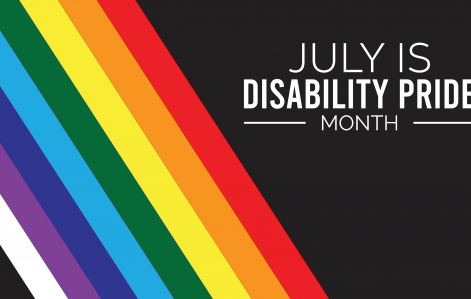Disability discrimination in the workplace is a serious issue that affects countless individuals every day. If you experienced discrimination based on your disability, you might wonder if you have grounds to sue your employer.
When you consult a disability discrimination attorney, they can explain the legal aspects of disability discrimination and provide valuable insights into whether you can take legal action against your employer to seek justice.
If you believe you were a victim of disability discrimination, reach out to an attorney as soon as possible.
SCHEDULE A FREE CASE EVALUATION
Understanding Disability Discrimination and Your Rights

To determine whether you can sue your employer for disability discrimination, you must understand the definition of disability discrimination and your rights as an employee.
Disability discrimination occurs when an employer treats you unfavorably because of your disability or fails to make reasonable accommodations that would allow you to perform your job duties effectively.
The goal of disability discrimination laws is to ensure equal employment opportunities for individuals with disabilities. The types of disabilities covered by the law are broad and encompass many physical and mental impairments. These include mobility impairments, visual or hearing impairments, chronic illnesses, and developmental disorders.
Examples of disability discrimination in the workplace can include denying a qualified individual with a disability a job or promotion, refusing to make reasonable accommodations, assigning undesirable tasks, or subjecting the employee to harassment or ridicule based on their disability.
Federal Laws Protecting Workers With Disabilities
The Americans with Disabilities Act (ADA) is a federal law that protects individuals with disabilities in various aspects of public life, including employment. Enacted in 1990, the ADA prohibits discrimination against individuals with disabilities in multiple areas, including employment.
Under the ADA, employers are prohibited from discriminating against qualified individuals with disabilities in all aspects of employment, including hiring, firing, promotions, job assignments, training, and compensation.
Additionally, the ADA requires employers to provide reasonable accommodations to enable employees with disabilities to perform their job duties, as long as doing so does not cause undue hardship to the employer.
In 2008, the ADA Amendments Act broadened the definition of disability and provided stronger protection for individuals with disabilities. This amendment clarified the focus should be on whether an individual can perform the essential functions of a job with or without reasonable accommodations.
The Rehabilitation Act of 1973 protects federal employees and individuals working for companies that receive federal funding from disability discrimination. This act requires these employers to provide reasonable accommodations and adhere to non-discriminatory practices.
Employer Obligations under Disability Discrimination Laws
Employers have certain obligations under disability discrimination laws to ensure that individuals with disabilities are not subjected to discrimination in the workplace. These obligations include making reasonable accommodations for employees with disabilities to perform their job duties.
Reasonable accommodations are modifications or adjustments to the work environment or job tasks that enable an individual with a disability to perform their job effectively. These accommodations can vary depending on the individual’s specific needs, but some common examples include providing assistive devices, modifying work schedules, or physically modifying the workplace.
Employers can foster a culture of diversity and ensure that individuals with disabilities have equal opportunities to succeed by creating an inclusive work environment. This can include implementing policies and practices that promote the inclusion of individuals with disabilities, training employees on disability awareness, and fostering a workplace culture that values diversity and inclusion.
Assessing the Viability of a Disability Discrimination Lawsuit
Before deciding to sue your employer, your lawyer will assess the viability of your disability discrimination claim. Here are some factors they will consider:
Establishing Disability Status

To bring a disability discrimination lawsuit, you must first establish that you have a qualifying disability under the ADA. The ADA defines a disability as a physical or mental impairment that substantially limits one or more major life activities.
Major life activities include functions such as walking, seeing, hearing, speaking, learning, and performing manual tasks. It’s in your best interest to consult with a disability discrimination lawyer who can evaluate your case and determine if your condition meets the ADA’s definition of disability.
Evidence of Discrimination
To build a strong case, you must gather evidence to prove that you experienced disability discrimination.
This evidence can include:
- Direct evidence: Statements or actions by your employer explicitly showing discriminatory intent.
- Circumstantial evidence: Indirect evidence that suggests discrimination, such as inconsistencies in treatment compared to non-disabled employees.
- Witness testimony: Statements from coworkers or supervisors who witnessed discriminatory behavior.
- Employment records: Performance evaluations, disciplinary actions, or other documentation that supports your claim.
- Medical records: Documentation of your disability and any accommodations you requested or were denied.
Employer Knowledge of the Disability
You must also establish that your employer knew about your disability. This can be demonstrated through documentation, previous conversations with your employer about your disability, or requests for reasonable accommodations.
Linking Discrimination to the Disability
You must also prove the link between the adverse employment action and your disability. This may require evidence such as discriminatory comments or treatment explicitly related to your disability.
Exhausting Administrative Remedies
Before filing a disability discrimination lawsuit, you may need to exhaust administrative remedies by filing a complaint with the Equal Employment Opportunity Commission (EEOC) or an equivalent state agency. This process involves submitting a formal complaint detailing the discrimination you experienced.
The agency will investigate your claim and attempt to resolve it through mediation or negotiation. If the agency determines there is sufficient evidence of discrimination, they may issue a right-to-sue letter, allowing you to proceed with a lawsuit.
Statute of Limitations
It’s crucial to be aware of the statute of limitations, which is the time limit within which you must file a lawsuit. The deadline for filing a disability discrimination lawsuit can vary depending on the circumstances and applicable laws.
However, consulting a disability discrimination lawyer will ensure you meet all necessary deadlines and preserve your legal rights.
Statutes of limitations apply to ADA claims and can impact your ability to file a case. Missing the statute of limitations can result in a summary dismissal of your claim, no matter the discriminatory conduct you allege.
Typically, if you allege Title I discrimination based on discriminatory action in the workplace, you must file a notice with the Equal Employment Opportunities Commission (EEOC) within 180 days of the misconduct.
Once you receive notification of your right to sue from the EEOC, you have only 90 days to initiate a lawsuit.
Damages and Remedies in Disability Discrimination Cases

If successful in a disability discrimination lawsuit, individuals may receive different types of damages. These can include compensation for lost income, back pay, front pay, and other economic losses directly related to the discrimination.
Additionally, individuals may seek damages for emotional distress, pain, suffering, and other non-economic harms caused by the discrimination.
Remedies for disability discrimination can vary but may include reinstatement to a job if the individual was wrongfully terminated, promotion to a desired position, reasonable accommodation, or changes in company policies or practices to prevent future discrimination.
Factors such as the severity of the discrimination, the impact on the individual’s life and career, and the specific laws in place can influence the compensation awarded in a disability discrimination case.
The Benefits of Hiring a Disability Discrimination Lawyer
Hiring a disability discrimination lawyer can provide significant benefits, including:
Experience in Disability Discrimination Laws
Disability discrimination laws can be intricate and vary depending on federal, state, and local regulations. A knowledgeable disability discrimination lawyer will have a thorough understanding of these laws and can apply them to your case.
Investigative Resources
Experienced disability discrimination lawyers have access to investigative resources that can help gather evidence to support your claim. They can interview witnesses, review employment records, and consult medical professionals to strengthen your case.
Negotiation and Settlement Skills
Many discrimination cases resolve through negotiation and settlement. A skilled disability discrimination lawyer will advocate for your rights and engage in constructive discussions with your employer or their legal representation to achieve a fair and favorable resolution.
Litigation Representation
If a resolution cannot be reached through negotiation, a disability discrimination lawyer will be prepared to represent you in court. They will build a strong case, present evidence effectively, and argue persuasively on your behalf to seek the compensation and justice you deserve.
How to Find a Qualified Attorney
Finding the right disability discrimination lawyer is imperative to building a solid legal case. Here are a few tips to find a qualified attorney:
Research Online
Start by researching disability discrimination lawyers online. Look for attorneys with experience in employment law. Visit their websites to learn more about their experience, track record, and client testimonials.
Seek Referrals
Ask friends, family, or colleagues if they have worked with a disability discrimination lawyer in the past. Referrals from trusted sources can provide valuable insights and narrow down your options.
Schedule Initial Case Evaluation
Contact attorneys and schedule initial case evaluation to discuss your case. Use this opportunity to assess their communication skills, legal knowledge, and overall approach to handling your case. Pay attention to their confidence, empathy, and willingness to answer your questions.
Consider Experience
When choosing a disability discrimination lawyer, consider their experience handling cases similar to yours.
An attorney with a proven track record in disability discrimination cases will understand the intricacies of this area of law and be better equipped to advocate for your rights.
Evaluate Costs and Fees
Discuss the attorney’s fee structure during your initial case evaluation.
Some disability discrimination lawyers work on a contingency basis, meaning they only collect a fee if they win your case. Others may charge hourly rates or a flat fee. Before deciding, ensure you understand the financial implications of hiring a specific attorney.
What to Do if You Think You’ve Faced Disability Discrimination

If you believe you have faced disability discrimination in the workplace, protect your rights. Here’s what you can do:
Keep Detailed Documentation
Start by documenting any incidents or interactions related to the discrimination. Include dates, times, locations, and the individuals involved. This documentation will serve as evidence if you decide to pursue legal action. Keep copies of any emails, memos, or other written evidence supporting your claims.
Consult with an Experienced Disability Discrimination Lawyer
Next, consult with an experienced disability discrimination lawyer who can evaluate your case and provide you with legal guidance.
A qualified lawyer will explain your rights, assess the strength of your claim, and handle the next steps for you. They can also represent you in negotiations or litigation if necessary.
File a Complaint with the Appropriate Agency
Depending on where you live, governmental agencies may investigate and address discrimination claims. These agencies may include the Equal Employment Opportunity Commission (EEOC) at the federal level or state-specific agencies. Your lawyer can prepare and file a complaint with the appropriate agency and ensure all necessary steps are taken.
Explore Alternative Dispute Resolution Options
Before pursuing litigation, exploring alternative dispute resolution methods, such as mediation or arbitration, is often beneficial. These processes can offer a faster and more cost-effective resolution than going to court. Your lawyer can advise you on which options may suit your situation.
File a Lawsuit, if Necessary
If all other efforts fail to resolve the issue, you may need to file a lawsuit against your employer. Your lawyer will manage your court proceedings and present your case in court.
Remember that each case is unique, and the outcome will depend on various factors, including the strength of your evidence and the applicable laws in your jurisdiction.
Contact a Well-Versed Disability Discrimination Attorney for Assistance Today
If you have experienced disability discrimination in the workplace, seek legal guidance from a qualified employment lawyer as soon as possible to schedule a free case evaluation and discuss your case.
You need an attorney who is dedicated to advocating for the rights of individuals facing disability discrimination and will provide the guidance and support you need to pursue justice.
Don’t let discrimination go unchallenged – take the first step towards protecting your rights today.





